If you've noticed that your kitchen sink is draining slowly or not at all, and there is a foul odor coming from the drain, it's likely that you have a clogged kitchen sink with black sludge buildup. This can be a common and frustrating problem for many homeowners, but understanding the causes and solutions can help you effectively address and prevent this issue. Causes: One of the main causes of black sludge in kitchen sinks is the accumulation of food debris and grease that gets washed down the drain. Over time, this debris can build up and form a thick sludge that clogs the pipes. Another common cause is the buildup of soap scum and detergents from dishwashing and handwashing. Additionally, if you have hard water, mineral deposits can also contribute to the formation of black sludge in your sink. Solutions: To effectively remove the black sludge and unclog your sink, you can try a DIY remedy or seek professional drain cleaning services. For a DIY solution, you can pour boiling water down the drain to loosen the sludge, followed by a mixture of baking soda and vinegar. Let it sit for a few minutes before pouring more boiling water down the drain. For a more thorough cleaning, you can also use a drain snake or plunger to dislodge the clog. If these methods do not work, it's best to call a professional for a more comprehensive and long-term solution.1. Causes and Solutions for a Clogged Kitchen Sink with Black Sludge
Cleaning a clogged kitchen sink with black sludge can be a messy and unpleasant task, but it's important to address it as soon as possible to prevent further buildup and potential damage to your pipes. Here are some steps you can take to effectively clean your sink and get it draining properly again. Step 1: Remove any visible debris Use a paper towel or cloth to remove any visible food debris or grease from the surface of the sink. This will help prevent the debris from going further down the drain and potentially causing a bigger clog. Step 2: Boil water Bring a pot of water to a boil and carefully pour it down the drain. This will help loosen any buildup and make it easier to remove. Step 3: Use a mixture of baking soda and vinegar Create a mixture of equal parts baking soda and vinegar and pour it down the drain. The combination will create a chemical reaction that can help break down and loosen the sludge. Step 4: Let it sit Allow the mixture to sit in the drain for about 10-15 minutes to give it time to work on breaking down the sludge. Step 5: Pour more boiling water After the mixture has had time to work, pour more boiling water down the drain to flush out the loosened sludge. Step 6: Use a plunger or drain snake If the clog is still present, you can try using a plunger or drain snake to dislodge it. Be sure to follow the instructions carefully to avoid any potential damage to your pipes. Step 7: Repeat if necessary If the clog is still not fully removed, you may need to repeat the process a few times until the drain is fully cleared.2. How to Clean a Clogged Kitchen Sink with Black Sludge
Dealing with a clogged kitchen sink with black sludge can be frustrating, but there are some DIY remedies you can try before calling in a professional. These remedies use common household items and are often effective in removing the buildup and unclogging the drain. Baking soda and vinegar: As mentioned before, a mixture of baking soda and vinegar can help break down and loosen the sludge in your drain. This is a natural and non-toxic option for clearing clogs. Boiling water and salt: Another simple DIY remedy is to pour a pot of boiling water down the drain, followed by a cup of salt. Let it sit for a few minutes before pouring more boiling water down to flush out the sludge. Salt and baking soda: A combination of salt and baking soda can also be effective in breaking down and removing black sludge buildup. Mix equal parts of both and pour it down the drain, followed by boiling water. Plunger: If you have a plunger at home, you can use it to try and dislodge the clog. Be sure to cover the overflow opening with a wet cloth to ensure proper suction. Drain snake: A drain snake is a long, flexible tool that can be inserted into the drain to physically remove the clog. This can be a more effective option for tougher clogs.3. DIY Remedies for a Clogged Kitchen Sink with Black Sludge
A clogged kitchen sink with black sludge buildup may seem like a minor inconvenience, but it can actually pose some serious dangers if left untreated. Here are some potential risks that can arise from a clogged kitchen sink. Sewage backup: If the main drain line is clogged, it can cause sewage to back up into your sink, which can be a health hazard and cause significant damage to your home. Potential pipe damage: The buildup of black sludge can put pressure on your pipes, causing them to crack or burst. This can lead to costly repairs and potential water damage in your home. Foul odor: The accumulation of food debris and grease can create a foul odor in your kitchen, making it an unpleasant place to cook and spend time in. Pest infestation: The leftover food debris in your clogged sink can attract pests such as cockroaches and flies, leading to an infestation in your home.4. The Dangers of a Clogged Kitchen Sink with Black Sludge
Prevention is always better than dealing with a clogged kitchen sink. By taking some simple steps, you can reduce the chances of black sludge buildup and keep your sink draining smoothly. Proper disposal of food waste: Be mindful of what you are putting down your kitchen sink. Avoid washing down large food scraps, and use a sink strainer to catch any smaller pieces of debris. Regular cleaning: Make it a habit to regularly clean your kitchen sink and drain to prevent any buildup of food debris and grease. Hot water flush: Every week, pour a pot of boiling water down your drain to help prevent any buildup of black sludge. Use a natural drain cleaner: Instead of using harsh chemical drain cleaners, opt for a natural solution like baking soda and vinegar to keep your drain clean and free of buildup. Dispose of cooking oils properly: Do not pour cooking oils and grease down your sink. Instead, let them solidify and dispose of them in the trash.5. How to Prevent a Clogged Kitchen Sink with Black Sludge
If your kitchen sink is constantly clogging and DIY remedies are not effective, it may be time to call in a professional drain cleaning service. A professional plumber will have the tools and expertise to effectively remove the black sludge buildup and unclog your sink. Hydro jetting: This is a method that uses high-pressure water to clear out any buildup and clogs in your pipes. It is a more thorough and long-lasting solution for a clogged kitchen sink. Video camera inspection: A plumber may use a video camera to inspect your pipes and identify the cause of the clog. This can help determine the best course of action for effectively removing the black sludge. Chemical drain cleaners: In some cases, a plumber may use chemical drain cleaners to dissolve the black sludge and clear the clog. However, this should only be used as a last resort, as these chemicals can be harmful to your pipes and the environment.6. Professional Drain Cleaning for a Clogged Kitchen Sink with Black Sludge
Understanding the common causes of black sludge buildup in kitchen sinks can help you take preventative measures to avoid this problem. Here are some of the most common causes of black sludge in kitchen sinks. Food debris and grease: The main culprit of black sludge buildup is food debris and grease that gets washed down the drain. This can include things like oil, coffee grounds, eggshells, and pasta. Soap scum and detergents: Soap scum and detergents from dishwashing and handwashing can also contribute to the formation of black sludge in your sink. Hard water: If you have hard water, mineral deposits can accumulate in your pipes and contribute to the formation of black sludge. Old pipes: Over time, old pipes can deteriorate and cause buildup of debris, leading to clogs and black sludge in your sink.7. Common Causes of Black Sludge in Kitchen Sinks
If you've noticed black sludge buildup in your kitchen sink drain, it's important to take action to remove it before it causes further problems. Here are some steps you can take to effectively remove black sludge from your kitchen sink drain. Step 1: Prepare the area Before you start cleaning, be sure to remove any dishes or items from the sink and clear the area around the drain. Step 2: Use a plunger or drain snake As mentioned before, a plunger or drain snake can be effective in dislodging the black sludge and clearing the clog. Step 3: Use a natural drain cleaner If the plunger or drain snake doesn't work, you can try using a natural drain cleaner like baking soda and vinegar to dissolve the sludge. Step 4: Rinse with hot water Once the sludge has been loosened, pour hot water down the drain to flush it out. Step 5: Repeat if necessary If the clog is still present, you may need to repeat the process a few times until the drain is fully cleared.8. How to Remove Black Sludge from a Kitchen Sink Drain
Regularly cleaning your kitchen sink is an important step in preventing black sludge buildup and keeping your sink draining smoothly. Here are some reasons why you should make it a habit to clean your kitchen sink on a regular basis. Prevent clogs: Cleaning your sink regularly can help prevent the buildup of food debris and grease, which can lead to clogs and black sludge in your drain. Remove bacteria and germs: Kitchen sinks can harbor bacteria and germs from food scraps and dirty dishes. Regular cleaning can help keep your sink free from harmful bacteria. Prevent foul odors: By regularly cleaning your sink, you can prevent the buildup of food debris and other substances that can cause a foul odor in your kitchen.9. The Importance of Regularly Cleaning Your Kitchen Sink to Avoid Black Sludge Buildup
Knowing the signs of a clogged kitchen sink can help you address the issue before it becomes a bigger problem. Here are some signs that your kitchen sink is clogged with black sludge and needs to be addressed. Slow draining: If your sink is draining slowly or not at all, it's likely that there is a buildup of black sludge in the pipes. Unpleasant odor: The accumulation of black sludge and food debris can create a foul smell in your sink and kitchen. Gurgling sounds: If you hear gurgling sounds coming from your sink when you use it, it's a sign that there is a clog in your pipes. Water backup: If water is backing up into your sink or overflowing, it's a sign that there is a clog that needs to be addressed immediately.10. Signs That Your Kitchen Sink is Clogged with Black Sludge and Needs to Be Addressed
Understanding the Culprit: Black Sludge in Your Clogged Kitchen Sink

What is black sludge?
 Black sludge in your kitchen sink is a common and frustrating problem that many homeowners face. It is a thick, dark substance that accumulates in your sink drain and can cause clogs, slow draining, and unpleasant odors. This black sludge is a combination of food particles, grease, soap scum, and other debris that gets stuck in your pipes over time. If left untreated, it can lead to more serious plumbing issues and even damage to your kitchen sink.
Black sludge in your kitchen sink is a common and frustrating problem that many homeowners face. It is a thick, dark substance that accumulates in your sink drain and can cause clogs, slow draining, and unpleasant odors. This black sludge is a combination of food particles, grease, soap scum, and other debris that gets stuck in your pipes over time. If left untreated, it can lead to more serious plumbing issues and even damage to your kitchen sink.
What causes black sludge?
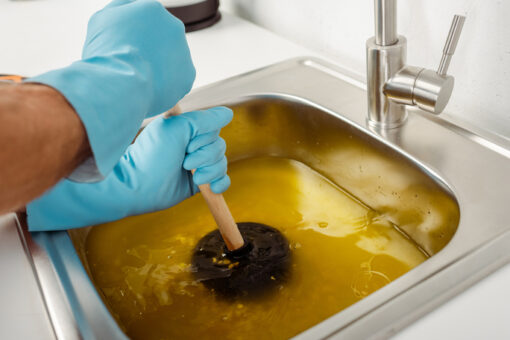 The main culprit behind black sludge in your kitchen sink is a build-up of organic and inorganic materials in your pipes. When you wash dishes or run your garbage disposal, small particles of food, grease, and soap scum can get stuck in the pipes. Over time, these particles can accumulate and mix with other debris, creating the thick black sludge that can clog your drain. Additionally, hard water and mineral deposits can contribute to the formation of black sludge.
The main culprit behind black sludge in your kitchen sink is a build-up of organic and inorganic materials in your pipes. When you wash dishes or run your garbage disposal, small particles of food, grease, and soap scum can get stuck in the pipes. Over time, these particles can accumulate and mix with other debris, creating the thick black sludge that can clog your drain. Additionally, hard water and mineral deposits can contribute to the formation of black sludge.
How to prevent black sludge?
 Preventing black sludge in your kitchen sink starts with proper maintenance and regular cleaning. Avoid putting large food particles down your sink, and make sure to run your garbage disposal frequently to prevent debris from building up. You can also use a drain strainer to catch any food particles that may go down the drain. Regularly cleaning your sink with a mixture of hot water and baking soda can also help prevent the formation of black sludge.
Preventing black sludge in your kitchen sink starts with proper maintenance and regular cleaning. Avoid putting large food particles down your sink, and make sure to run your garbage disposal frequently to prevent debris from building up. You can also use a drain strainer to catch any food particles that may go down the drain. Regularly cleaning your sink with a mixture of hot water and baking soda can also help prevent the formation of black sludge.
How to get rid of black sludge?
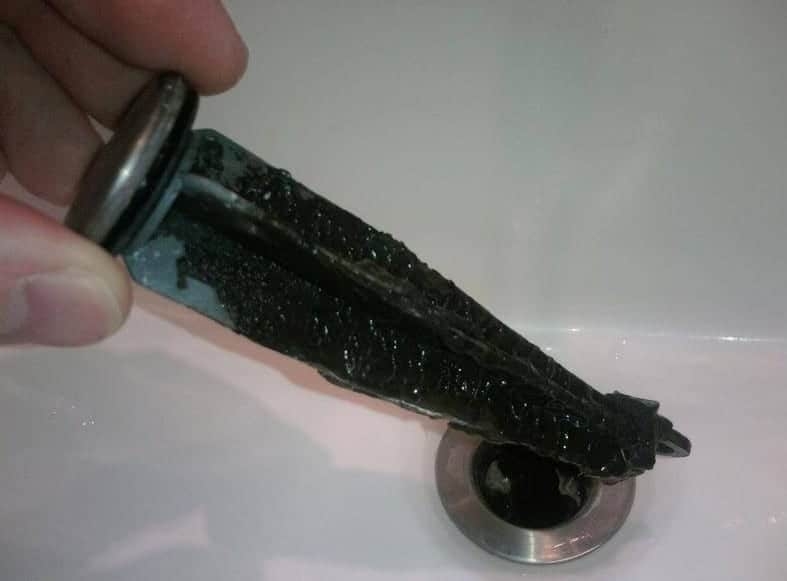 If you already have black sludge in your clogged kitchen sink, there are a few methods you can try to get rid of it. One option is to use a plunger to push the sludge out of the drain. You can also try using a mixture of hot water, vinegar, and baking soda to break up the sludge and flush it out. If these methods don't work, it may be time to call a professional plumber to help remove the sludge and unclog your drain.
Don't let black sludge ruin your kitchen sink.
By understanding what causes it and taking preventative measures, you can keep your sink clean and functioning properly. Regular maintenance and cleaning are key to preventing the build-up of black sludge. And if you do encounter this problem, don't hesitate to seek professional help to get your sink back in top shape.
If you already have black sludge in your clogged kitchen sink, there are a few methods you can try to get rid of it. One option is to use a plunger to push the sludge out of the drain. You can also try using a mixture of hot water, vinegar, and baking soda to break up the sludge and flush it out. If these methods don't work, it may be time to call a professional plumber to help remove the sludge and unclog your drain.
Don't let black sludge ruin your kitchen sink.
By understanding what causes it and taking preventative measures, you can keep your sink clean and functioning properly. Regular maintenance and cleaning are key to preventing the build-up of black sludge. And if you do encounter this problem, don't hesitate to seek professional help to get your sink back in top shape.


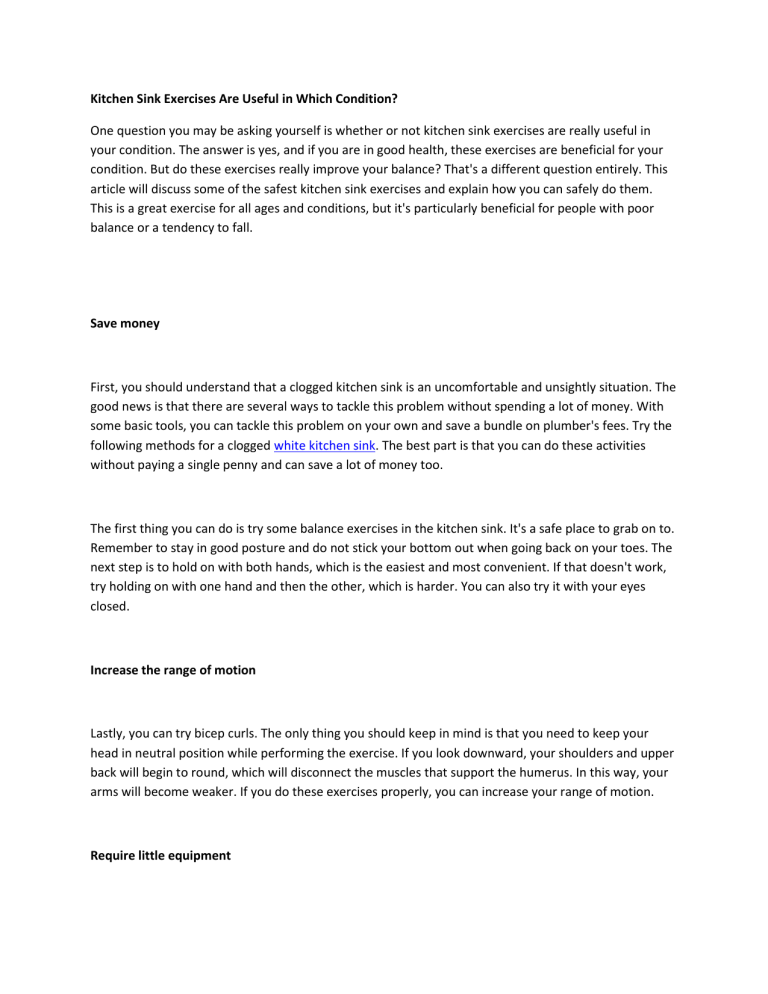


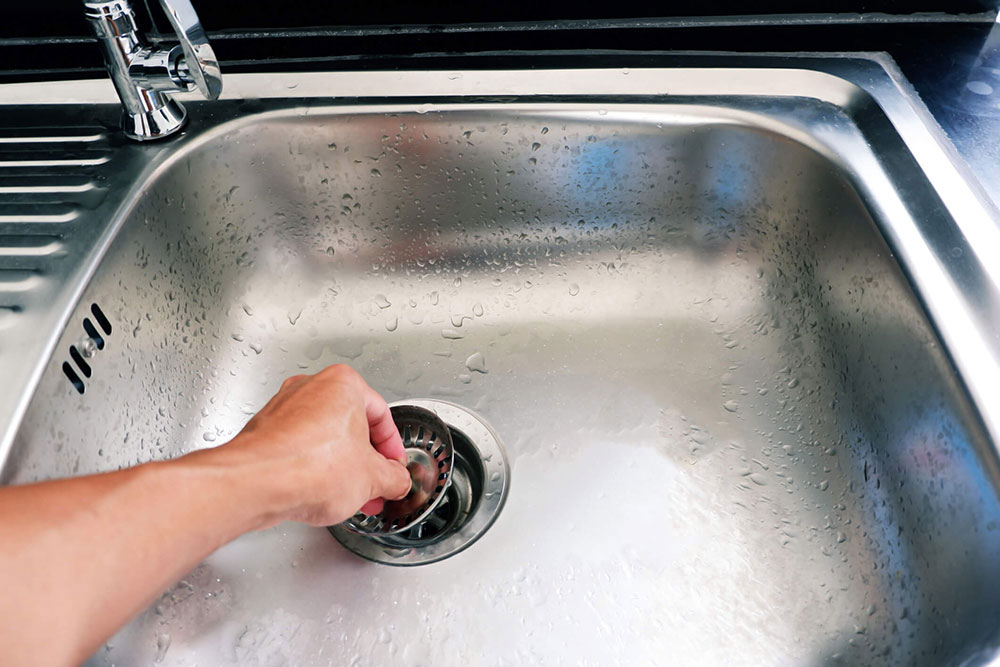



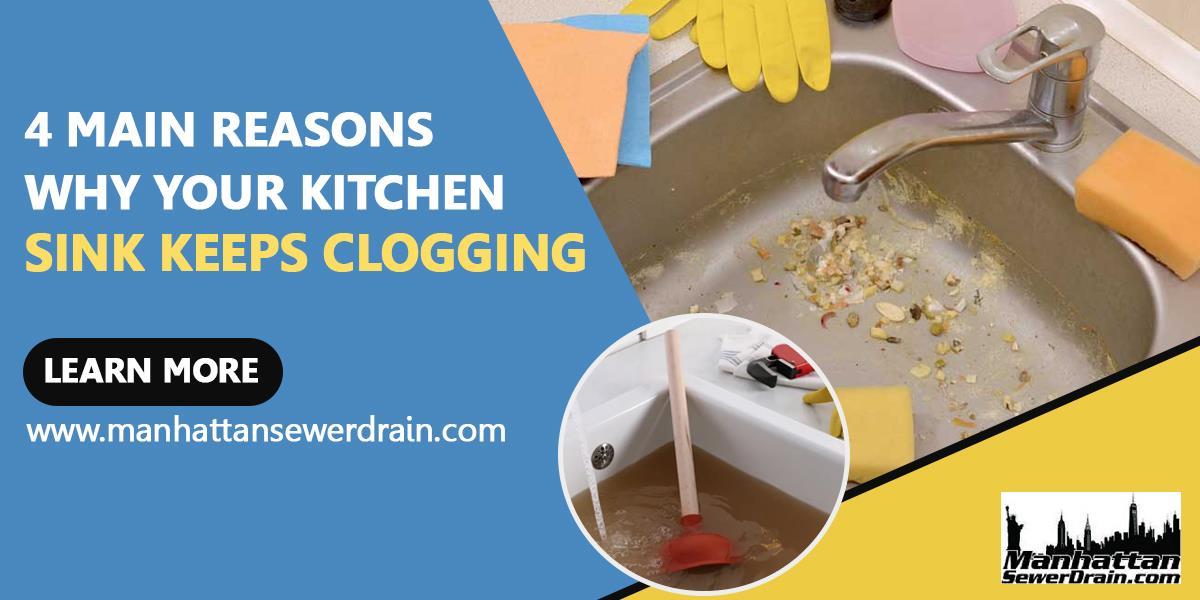




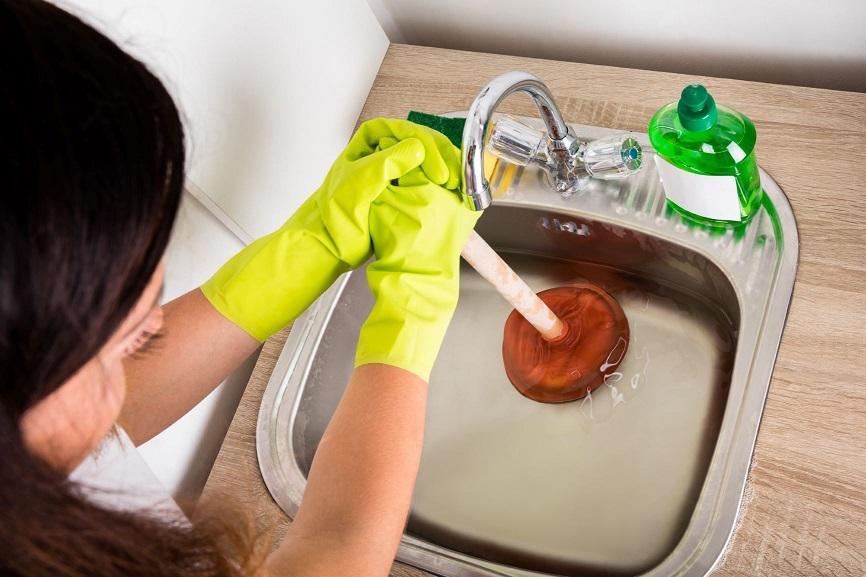




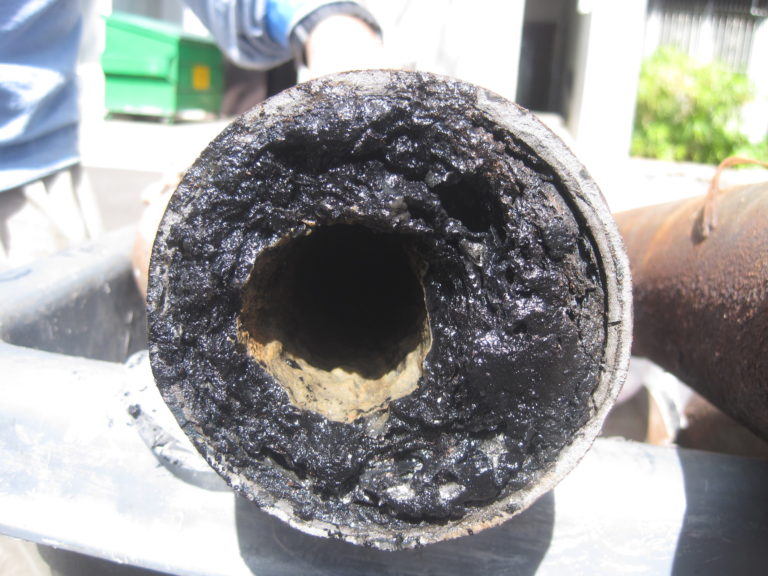

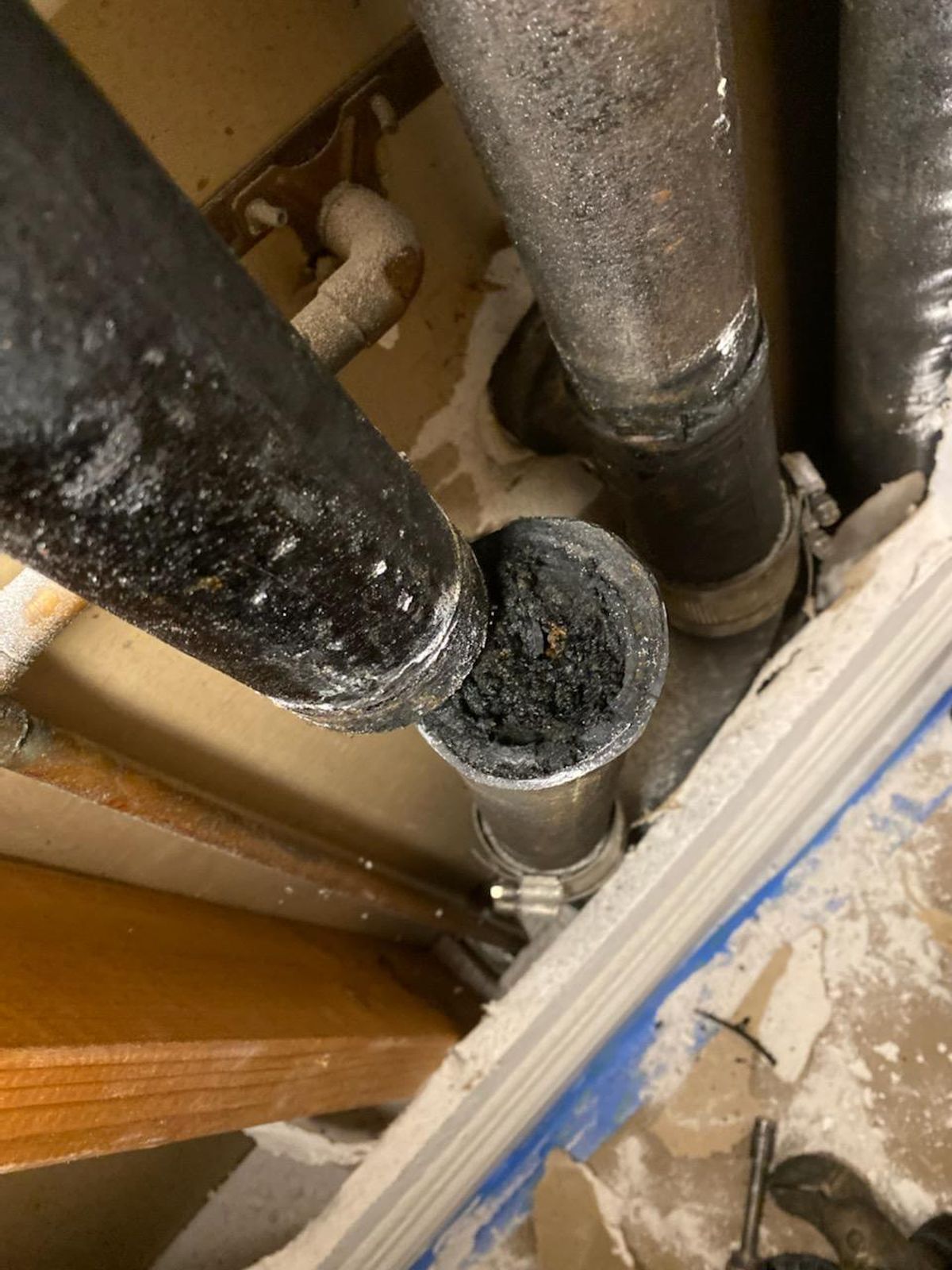







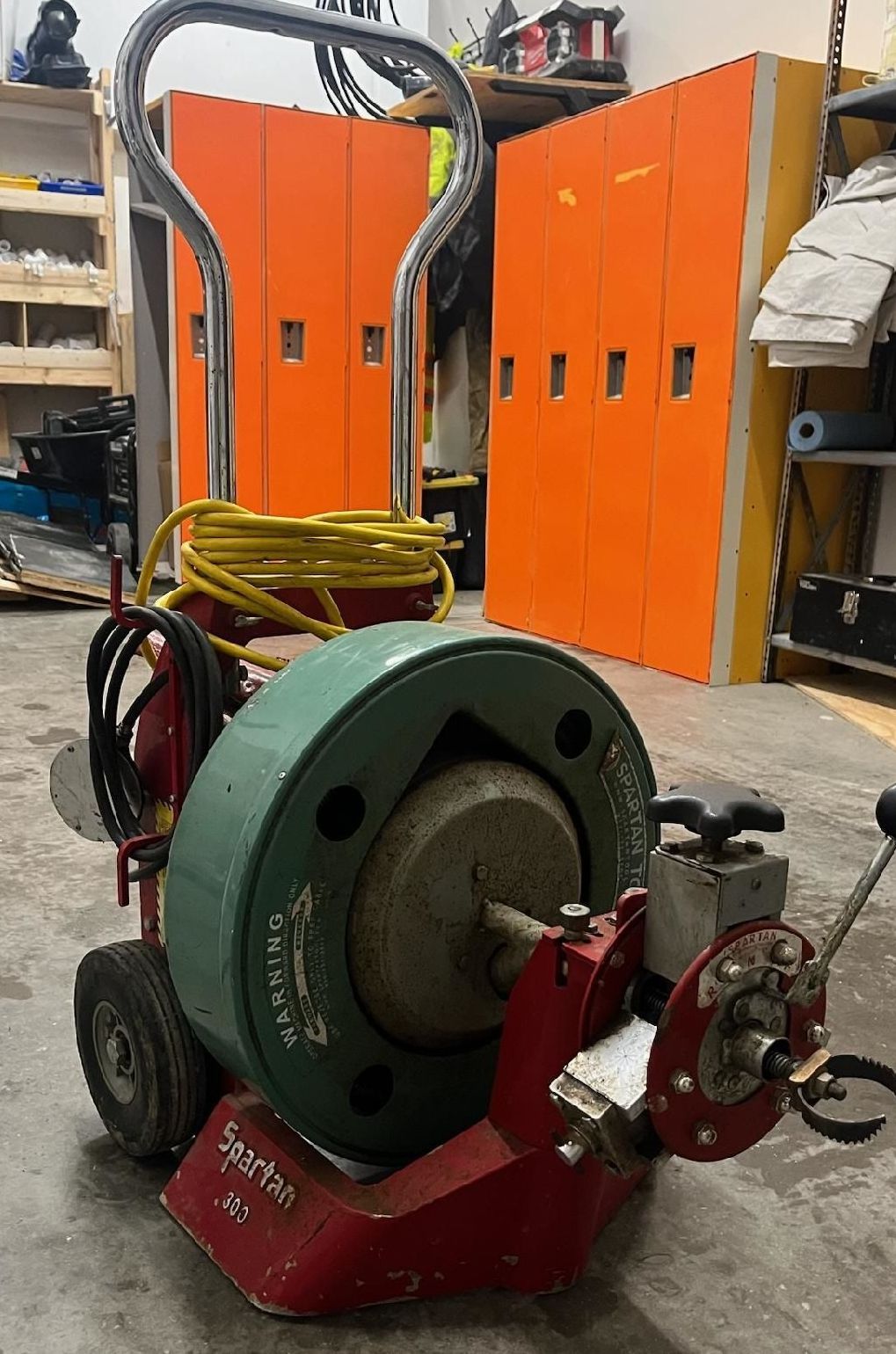

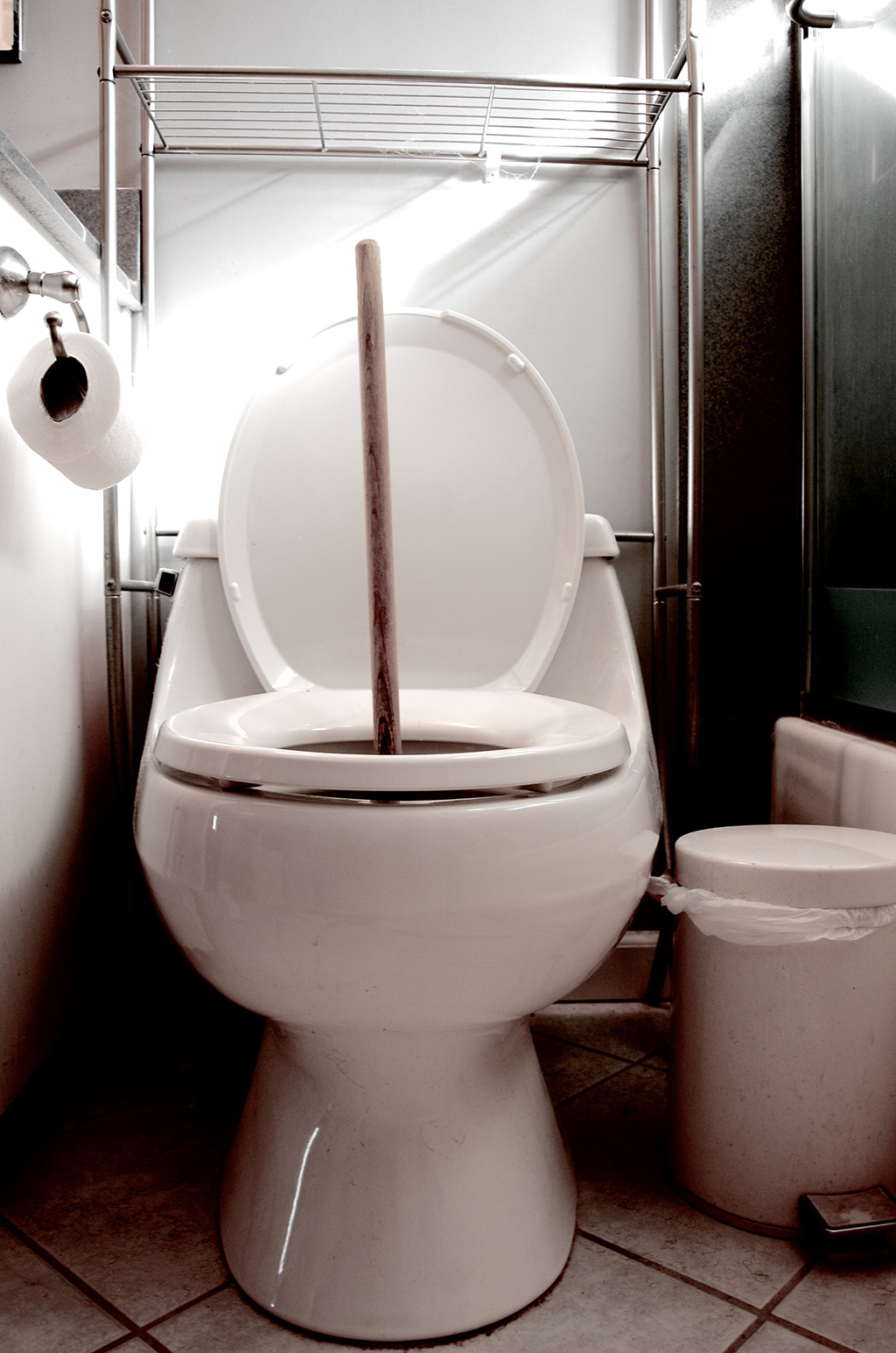

:max_bytes(150000):strip_icc()/freshen-and-unclog-drain-with-baking-soda-1900466-22-bbf940b70afa4d5abef0c54da23b1d3f.jpg)






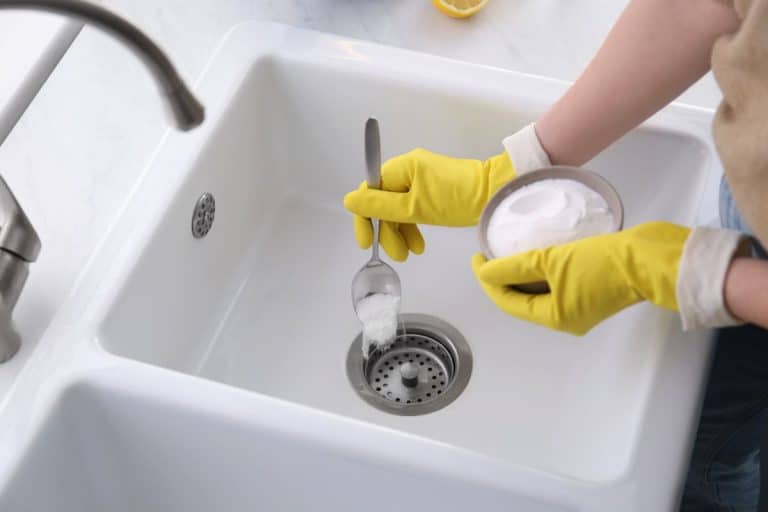
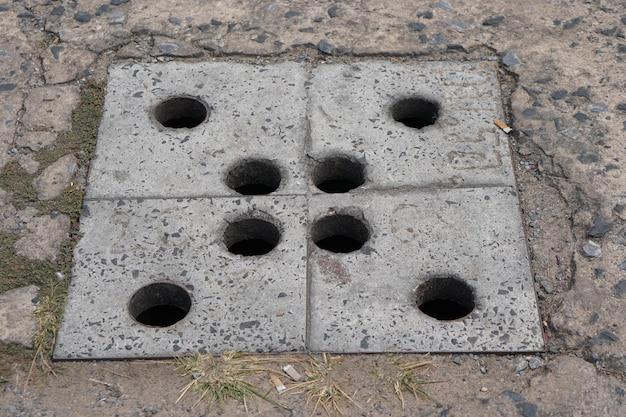













:max_bytes(150000):strip_icc()/Basic-kitchen-sink-types-1821207_color_rev-0b539306b9ef4236a136624ad2a89a4c.jpg)














